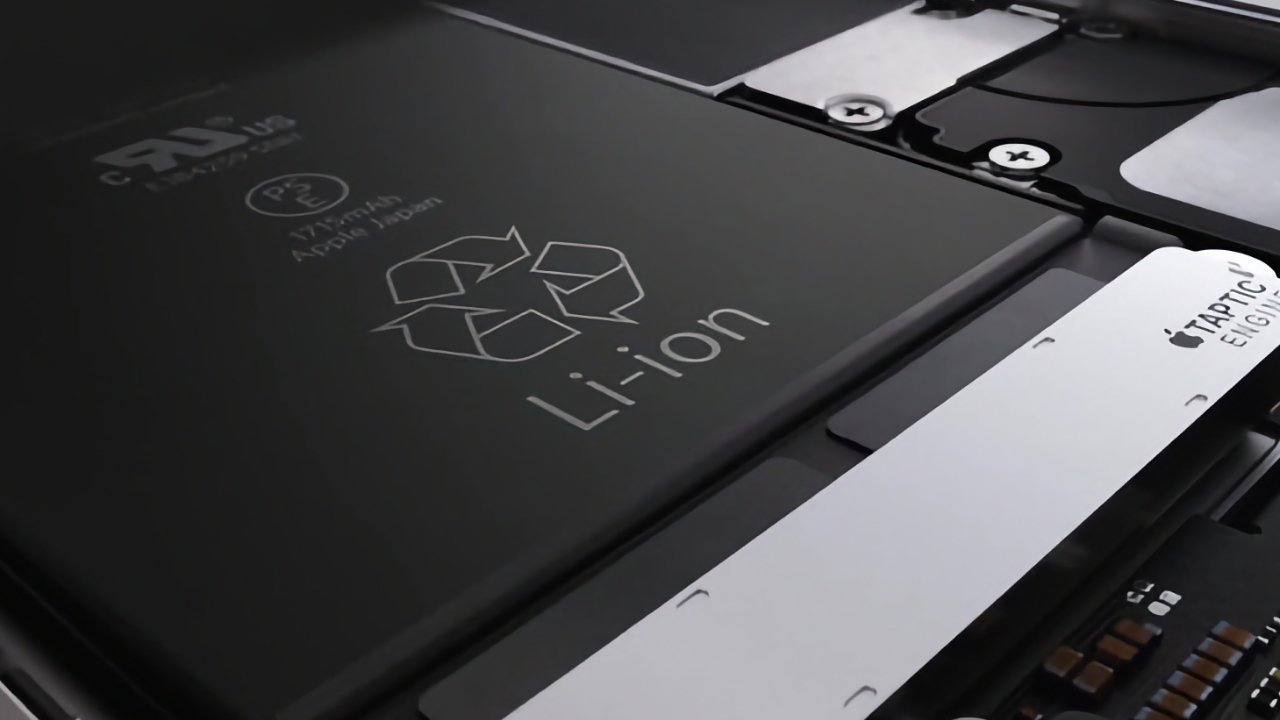Apple to pay $14.4M to settle Canadian 'Batterygate' lawsuit
A court in British Columbia has given its approval for a settlement that will see Apple pay out up to $14.4 million, to end a class-action lawsuit over alleged iPhone throttling.

An iPhone battery
The class-action lawsuit alleged that Apple's software updates slowed down the iPhone 6 and iPhone 7 models, allegations that Apple firmly denies. However, to deal with the lawsuit, Apple agreed to make payments to the class, totaling between $11.1 million and $14.4 million.
The defined class consists of Apple customers who bought an iPhone 6, 6 Plus, 6s, 6s Plus, or iPhone SE running iOS 10.2.1 or later, or an iPhone 7 or 7 Plus running iOS 11.2 or later, before December 21, 2017. It applies to all residents in all provinces, except for Quebec, and that a serial number must be supplied.
For their trouble, consumers can expect a payment between $17.50 and $150 if accepted in the class. It is unclear how much of the fund will be paid to lawyers in the lawsuit.
CBC reports that similar lawsuits were filed in Alberta, Ontario, and Saskatchewan.
Class counsel Michael Peerless said the judge was fair and reasonable with their decision on the proposed settlement. While Apple says the settlement isn't an admission of fault, Peerless adds that that Apple "did the right thing and came forward."
The class-action suit result is the latest that Apple has to face regarding the so-called "batterygate" saga, which involved a slowdown of iPhone performance triggered in software updates, in order to protect the device over battery wear. Apple maintains the updates were to maintain stability and to benefit consumers, not to push them to pay for upgrades.
In January, Apple started making payments from its 2020 $500 million settlement to end a similar U.S. class action lawsuit, with class members being paid over $92 per claim.
Read on AppleInsider

Comments
The claim that this was planned obsolescence, intended to push iPhone customers to buy a new phone, is erroneous. Which would more quickly force a decision on replacement: a phone that slows down, or a phone that crashes? Slow is annoying. Crashing is non-functional. Throttling would actually delay customers' decisions to go buy a new phone, yet this is the thing Apple is forced to pay out for.
Pardon me? British Columbia IS a province.
It should say:
Companies DO NOT pay for stupid lawsuits like that.
YOU AND I PAY FOR IT!
That's right. We pay a premium to Apple, not only for great design and the world's best OS, but we also pay the stupid morons of the world indirectly when they sue Apple and win. We then have people rush in to say that it doesn't matter because "in the greater scheme of things, it's small money for Apple." They always make ridiculous comparisons like that rather than looking at that truly big money in absolute terms. Fact is, somebody pays for it. Apple pays it in your behalf first, then we the consumer pay it back later, slowly, over time, as we buy Apple products and services.
Am I happy about that? Heck no!
Is it Apple's fault? No.
It's the fault of the stupid morons out there, and their blood sucking lawyers.
Sometimes I wish nobody had the right to sue about anything. Too many people abuse the very system that is supposed to keep order in society, and society pays a heavy price for it.
This settlement with no admission of wrongdoing is what finally results from that. A few users will be able to get a few dollars, but more importantly, the lawyers will all get paid to go away. Throttling is now a commonly known component of battery management, so new lawsuits won’t re-emerge on this issue at least.
The issue was totally about transparency. Apple only issued an explanation after the fact. At that point it becomes an excuse. They also didn’t admit or tell anyone until people started asking. If they were being transparent they would have clearly explained what they were doing in the release notes.
It’s not a transparency issue. It’s a cynics and opportunists will go with their preferred narrative no matter what the truth is nor what Apple does to explain the truth issue.